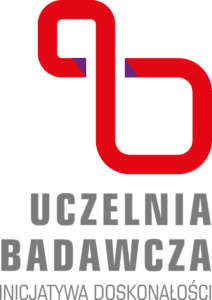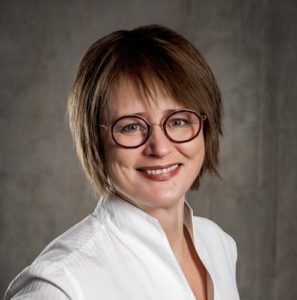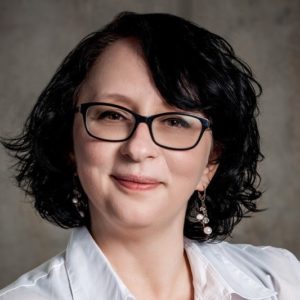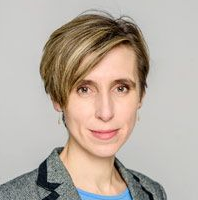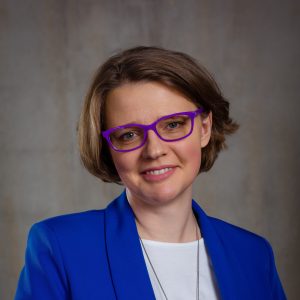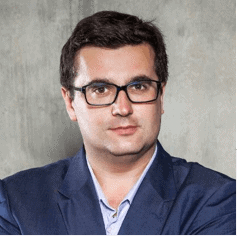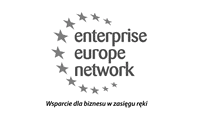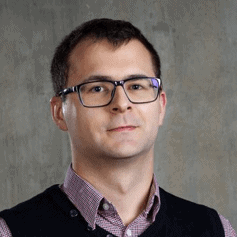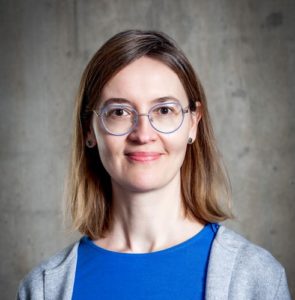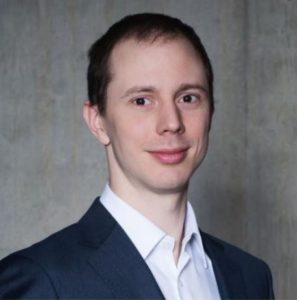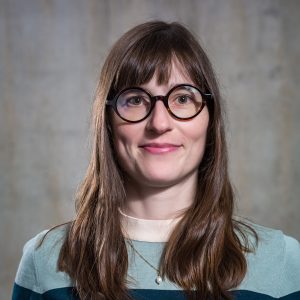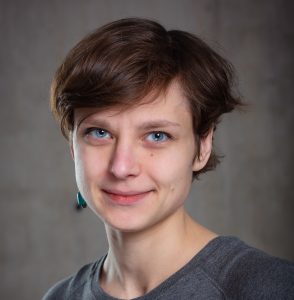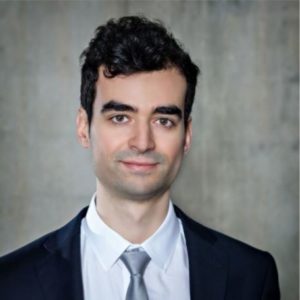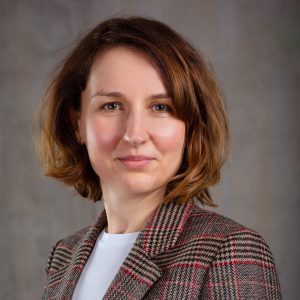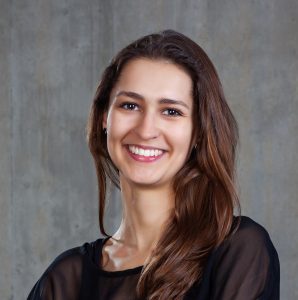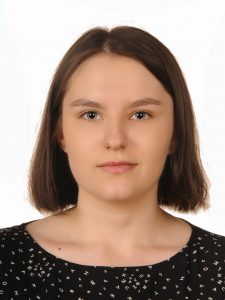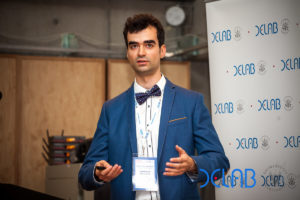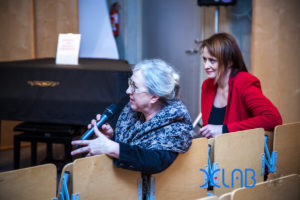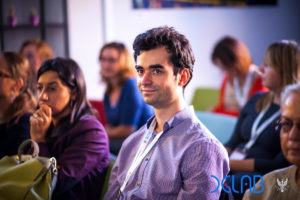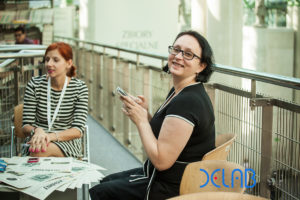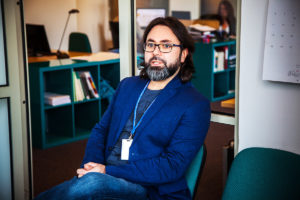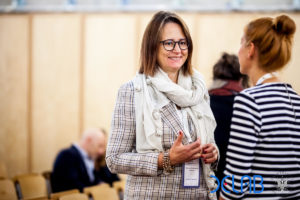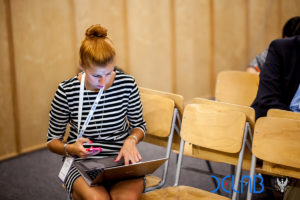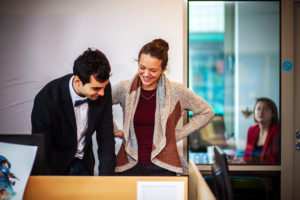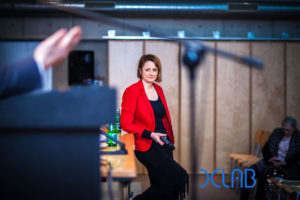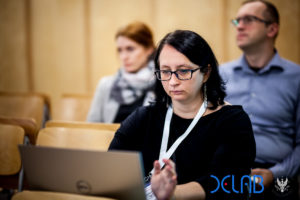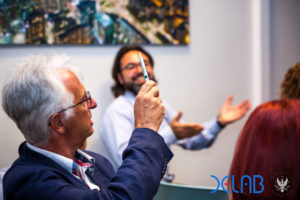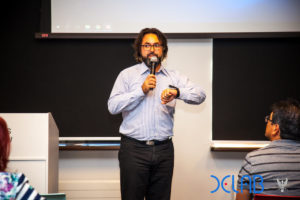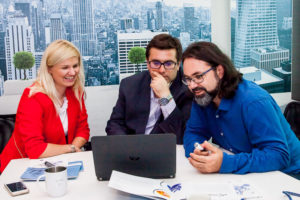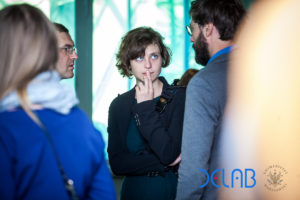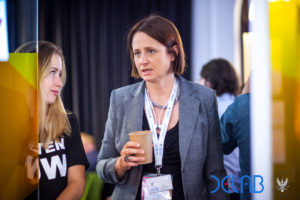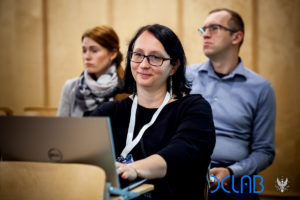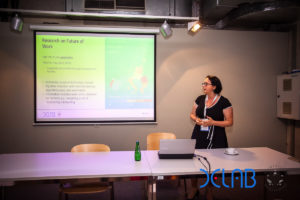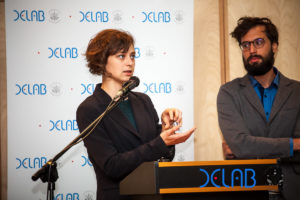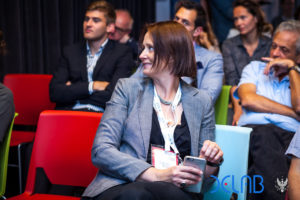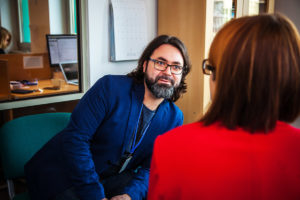About us
DELab UW – Digital Economy Lab was established in 2013 thanks to a grant funded at Warsaw University by Google. From the beginning, the grant agreement ensured that we retained our scientific autonomy, especially with regard to the choice of research subjects and the opinions we formulated. The grant helped us build institutional capacity, develop a competent team, and engage in networks of international academic and research collaboration.
Currently, DELab UW operates as an autonomous interdepartmental project, embedded in the University of Warsaw. It involves the Faculty of Economics, the Faculty of Sociology and the Faculty of Law and Administration.

University environment
We acquired new competences, not obvious from the perspective of academics: the ability to find our way in business networks, establish partnerships with non-academic institutions and communicate research in a clear and attractive manner. This has allowed us to effectively cooperate with the university environment.
Research subject
Our research focuses on the digital economy, society and politics. Being primarily scientists – economists, sociologists, lawyers, computer scientists and data science specialists – we are at the same time open to research and analytical cooperation with business and public institutions.
Team
Managing Director of DELab UW
Faculty of Economic Sciences, University of Warsaw
Topics:
ICTdataficatontransformation of workartificial intelligencesharing economyautomatisationprzedsiębiorczośćdigital transformationdigitalizationworknew technologieslabour marketsocietal challengesimpact of the pandemicDigital EconomySMEdataeducationdigital economyhuman capitalwomen in the labour marketdigital competencesfuture competencesindustry 4.0familydevelopment of entrepreneurshipfinancial sectorhandel elektronicznycyfrowe polityki publiczne
Scientific Director, coordinator of the project „Developing Digital Sociology at the UW” within IDUB
Faculty of Sociology, University of Warsaw
Topics:
ICTdataficatontransformation of workartificial intelligenceautomatisationprzedsiębiorczośćdigital transformationdigitalizationnetwork interactionsworknew technologieslabour marketsocietal challengesimpact of the pandemicDigital EconomySMEdataeducationremote learningdigital economyhuman capitalwomen in the labour marketdigital competencesfuture competencesindustry 4.0roboticsfamilydevelopment of entrepreneurshipfinancial sectortechnology trendscyfrowe polityki publiczne
Faculty of Economic Sciences, University of Warsaw
DELab UW Legal Analyst
Faculty of Law and Administration, University of Warsaw
Manager of Enterprise Europe Network and Horizon 2020 projects – „KAM2CentralPoland”.
Enterprise Europe Network
Senior Consultant, Enterprise Europe Network
Enterprise Europe Network
Topics:
digital mediadigital culturedataficatonautomatisationprzedsiębiorczośćdigital transformationdigitalizationnew technologieslabour marketsocietal challengesimpact of the pandemicalgorithmdiscourse analysisbig techblockchainremote learningdigital economydigital competencesfuture competencesresearch methodEU lawonline privacyindustry 4.0development of entrepreneurshipbrokerage meetingsstartupdigital consumptionmethodologycomobilityvirtual realitymetaversedatafikacjacyfryzacjanowe technologieautomatyzacjakobotytransformacja cyfrowacyfrowy bliźniakprzemysł 4.0quantum mechanicscosmic radiationurban mobilitynftdigital culturedigital culturedigital cultureinternational data transfers
Coordinator of Jobs & Skills for the Future program
Faculty of Sociology, University of Warsaw
Topics:
digital mediadataficatonartificial intelligencesharing economyprzedsiębiorczośćdigital transformationdigitalizationnetwork interactionsnew technologiesimpact of the pandemicDigital Economyautonomous vehiclesalgorithmbig techdigital economyresearch methodEU lawfinancial sectortechnology trendscomobility
Analyst DELab UW
Faculty of Economic Sciences, University of Warsaw
Analyst DELab UW
Faculty of Economic Sciences, University of Warsaw
Coordinator of DELab UW Entrepreneurship & Academia Program
Analyst DELab UW
Faculty of Sociology, University of Warsaw
Data Science Program Coordinator
Faculty of Economic Sciences, University of Warsaw
Analityczka DELab UW
Wydział Socjologii UW
Analyst DELab UW
Faculty of Management, University of Warsaw
Topics:
digital mediadataficatontransformation of workartificial intelligencesharing economydigital transformationdigitalizationworknew technologiessocietal challengesplatformsimpact of the pandemicalgorithmblockchaineducationremote learninghuman capitaldigital competencesfuture competenceslawEU lawonline privacyroboticshigher educationcyberbezpieczeństwo
Analyst DELab UW
Faculty of Economic Sciences, University of Warsaw
Analyst DELab UW
Faculty of Economic Sciences, University of Warsaw
Topics:
digital mediadataficatonartificial intelligenceautomatisationprzedsiębiorczośćdigital transformationfuture of Internetdigitalizationworknew technologiestext mininglabour marketsocietal challengesimpact of the pandemicremote learningresearch methodlawonline privacyfuture of workroboticstechnology trendsvirtual realityNGI Forward
Analyst DELab UW
Faculty of Sociology, University of Warsaw
Analyst DELab UW
Faculty of Economic Sciences, University of Warsaw
Topics:
smart cityartificial intelligencesharing economydigitalizationnew technologiessocietal challengesimpact of the pandemicautonomous vehiclesalgorithmeducationdigital competencesfuture competencesresearch methodEU lawtechnology trendsNGI Forwardanaliza prawna
Analyst DELab UW
Faculty of Economic Sciences, University of Warsaw
Social Machine Project Manager
Faculty of Sociology, University of Warsaw
Analyst DELab UW
Faculty of Sociology, University of Warsaw
Analityk DELab UW
Wydział Socjologii UW
Analityczka DELab UW
Wydział Prawa i Administracji UW
Science Manager in IDUB program
Student of digital sociology
Faculty of Sociology, University of Warsaw
Events
We acquired new competences, not obvious from the perspective of academics: the ability to find our way in business networks, establish partnerships with non-academic institutions and communicate research in a clear and attractive manner. This has allowed us to effectively cooperate with the university environment.

